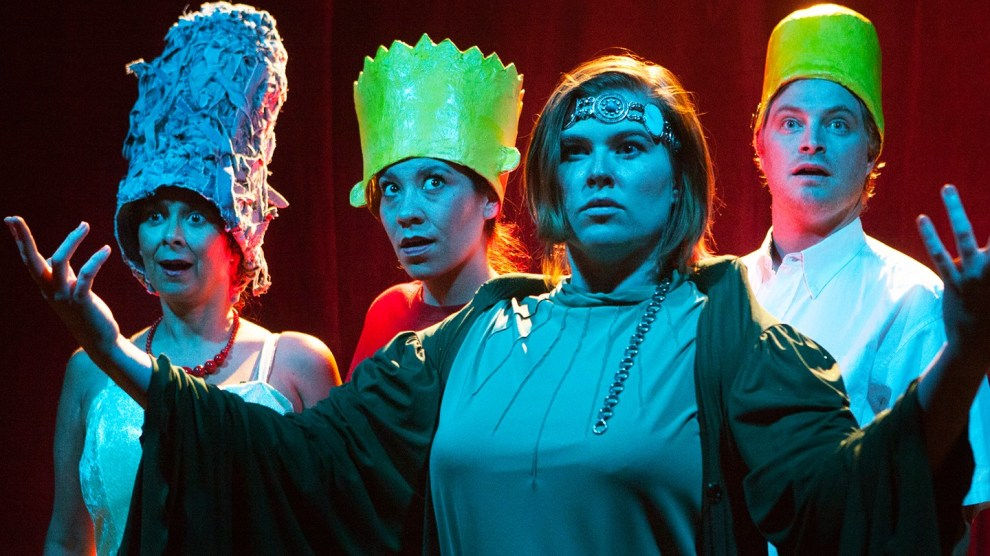Understanding Genre in Mr. Burns: Blending Sitcom and Apocalypse on Stage

Welcome!
This project seeks to discover more about the genres blended in Mr. Burns: A Post-Electric Play. Set in a post-apocalyptic dystopia, the play follows a group of survivors struggling to recount an episode of The Simpsons. This play uses elements of the Sitcom genre in tandem with the Apocalypse and Dystopia genres. The pages of this website try to unpack this use of genre in the play, and to find answers to questions like: What is the structure of the Sitcom genre? What is the structure of the Apocalypse genre? Why are these genres so popular? How are Apocalypse and Dystopia similar/different? How are these structures used within the play? How are these structures challenged by the play? To dive into these questions, explore the gallery below.
Or, navigate the buttons below for some more context:
A Note on the Complexity of the Play
The purpose of this website is to help shed light on some of the layers in this play. But what is it about the play that makes it complex?
Washburn's work is a piece of theatre that does not adhere to some of the theatrical conventions a modern audience is used to (especially in Act Three). The play also molds together many different styles of theatre throughout the play, beginning with realism, moving to presentational theatre and including elements of a Greek Chorus and Greek Tragedy. Considering the length of the entire show, this play is a big pill to swallow after one viewing. Audiences will probably be left with questions as they try to unravel the performance they just saw. On top of this, there is also a play within the play, but more specifically, a play about a theatre troupe attempting to put on a play. There are certainly many layers to what is going on onstage, not to mention the scene is set in a post-apocalypse dystopia with these characters fighting for their lives while they try to make a show about The Simpsons.
Washburn writes a play about the process of writing and staging a play, and it is definitely not an average story that modern audiences would see regularly in other media. Another reason this play becomes more complex is due to the ending of the story. Audiences are not left with a conclusive ending or wrap up of conflict at the end, and due to the vague amount of information given to the viewer throughout the story, there are many loose ends and lines in the story left unclear. Hopefully, while this website might not answer every burning question about this play, it may shed some light on the viewing experience and unpack some of the genres and styles used in this play.
After looking through the site, what are your thoughts?
I want to improve this site moving forward and would love to get any feedback you have! If you have some time, please fill out the survey below.



